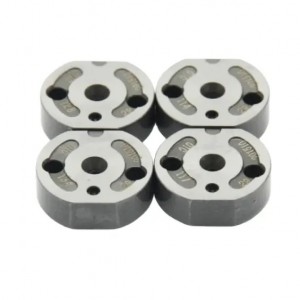Genuine Quality Diesel Injector Repair Kit for BK2Q-9K546-AG Injector Parts Engine Parts Auto Parts
products description
| Reference. Codes | BK2Q-9K546-AG |
| OE/OEM Codes | / |
| Application | Injector Repair Kits |
| MOQ | 4PC |
| Certification | ISO9001 |
| Place of Origin | China |
| Packaging | Neutral packing |
| Quality Control | 100% tested before shipment |
| Lead time | 7~15 working days |
| Payment | T/T, L/C, Paypal, Western Union or as your requirement |
Injector repair kit: technology iteration and market adaptability research
Fuel injectors are core components of an engine's fuel injection system, and their operating condition directly impacts the engine's power output, fuel economy, and emissions. Fuel injector repair kits, as specialized components for repairing injector failures, play a vital role in maintaining normal engine operation and reducing repair costs. This article provides an in-depth analysis of the components, functions, and advantages of fuel injector repair kits, as well as their applications in various fields and future development trends, providing a reference for related maintenance work and industry development.
I. Introduction
Stable engine operation depends on precise fuel injection, and fuel injectors play a critical role in this process. However, due to factors such as fuel quality, operating environment, and age, injectors are prone to failures such as poor sealing, nozzle blockage, and needle valve sticking. In such cases, fuel injector repair kits offer a cost-effective and efficient solution for restoring injector performance.
II. Repair Kit Composition and Function
Fuel injector repair kits typically contain several key components. Seals, such as fluoroelastomer O-rings, leverage their excellent high-temperature and oil-resistance to effectively prevent fuel leaks in the high-temperature, high-pressure fuel environment of an engine, ensuring stable internal injector pressure and precise fuel injection along the intended path. Gaskets, such as copper washers, leverage their excellent thermal conductivity and pressure resistance to provide a cushioning and sealing effect between the injector and the engine block, preventing loosening and leaks caused by vibration or thermal expansion and contraction. Repair kits may also include functional parts such as needle valves and springs to replace worn or damaged components and restore the injector to normal operation.
III. Advantages
Compared to directly replacing the entire injector, using a repair kit offers significant advantages. Cost-effectively, a repair kit is often only a fraction of the price of a new injector, significantly reducing maintenance costs. This is particularly true for fleet operations and construction machinery, where injectors are heavily used. In terms of timeliness, repair kits can quickly repair faults, minimizing equipment downtime and production losses caused by failures, thereby improving equipment efficiency. Furthermore, the proper use of repair kits can extend the overall service life of fuel injectors, reduce resource waste, and align with the concept of sustainable development.
IV. Application Scenarios
In the automotive sector, from passenger cars to commercial vehicles, fuel injector repair kits are widely used to address injector failures, helping owners and repair shops maintain optimal engine performance while complying with environmental regulations. In industrial engines, such as those in generator sets and construction machinery, repair kits ensure stable injector operation under harsh operating conditions, ensuring continuous industrial production. Marine engines also rely on repair kits to promptly repair injector failures under long-term high loads and complex marine environments, ensuring safe navigation and stable power.
V. Future Outlook
As engine technology continues to innovate, fuel injector repair kits will also continue to evolve. In terms of materials, more high-performance, corrosion-resistant, and wear-resistant new materials, such as nano-coatings, will be incorporated to further enhance the durability and sealing performance of repair kit components. Intelligent diagnostic tools will be deeply integrated with repair kits. Through sensors and intelligent devices, they will enable accurate diagnosis and early warning of injector failures, making maintenance work more targeted and efficient, and providing a more solid guarantee for the stable operation of the engine fuel injection system.





































